In the high-octane world of motorsports, few names shine as brightly as Roger Feghali. With a career defined by speed, precision and a relentless pursuit of victory, Feghali has carved his legacy as one of the most celebrated rally drivers of our time. We learn more about the man behind the helmet, exploring his journey to the pinnacle of the sport, his philosophy and what keeps him in Lebanon.
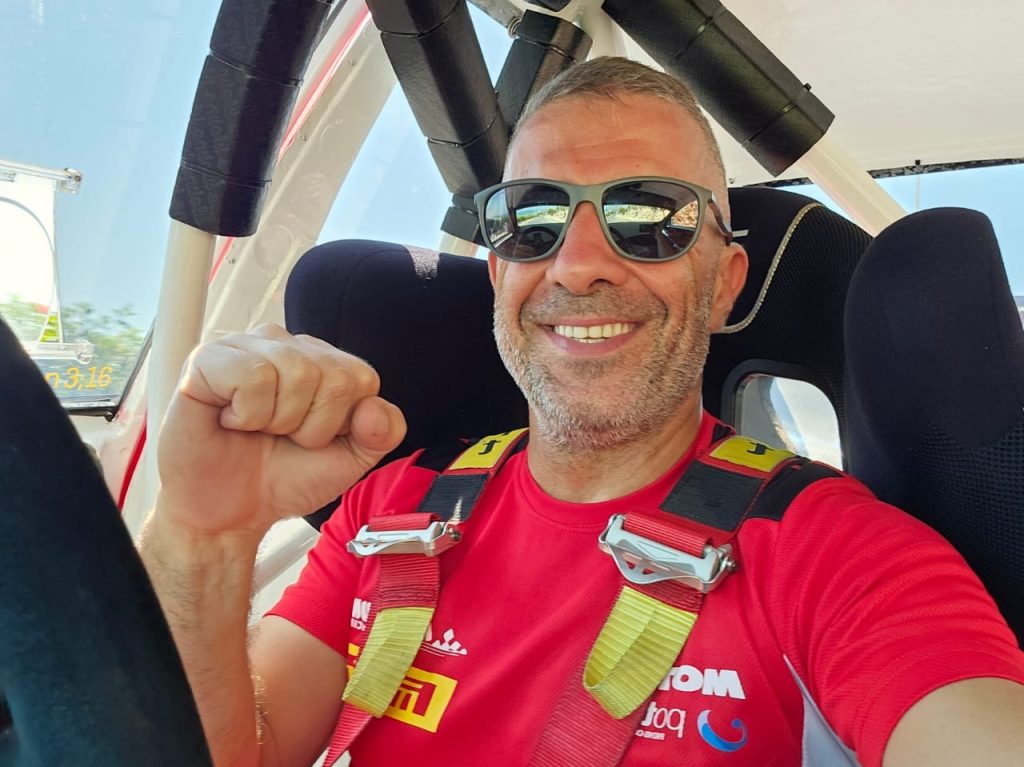
How did your racing career begin?
My racing career began with a great deal of inspiration from my family. My dad and uncle ran a workshop fixing road cars, and I remember rally drivers bringing their cars there when I was around 10 or 11 years old. I didn’t fully understand it at the time, but they were helping these drivers with their cars. Even at that young age, I was observing the way things were done—sometimes not as professionally as they could have been—and I had this crazy idea that I wanted to have my own team someday.
That dream grew, and I decided I wanted not only to drive but also to build my own team. To prepare for this, I studied in Stockholm and in the UK from 1993 to 1996, but my ultimate goal was always to return to Lebanon, my homeland, to find sponsors and start racing.
When I got back, I teamed up with my good friend Ziad Shihab, who became my first co-driver. He and his brother worked tirelessly to help me find the budget to make this dream a reality. In 1996, thanks to their efforts, I finally launched my career in racing. It’s been an incredible journey ever since, and I still consider them like my brothers.
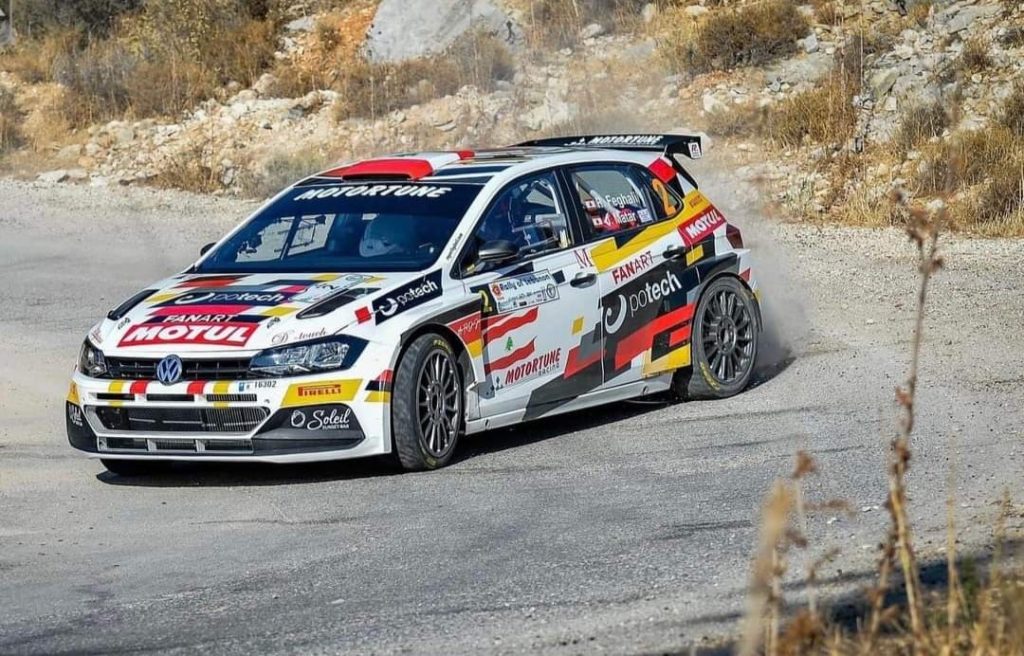
Was there much of a racing culture in Lebanon back then?
Of course, of course. We’ve always aimed to push everything to the next level. Whether it was my driving, my co-driver’s performance, the way we developed our note system, or how we ran the workshop and managed the team, we were constantly striving to improve. But the culture of rallying itself has deep roots in Lebanon, dating back to the 1950s or 1960s. Legendary drivers were part of it, competing across Lebanon, Jordan and Syria. It’s been a well-established tradition for decades.
For me, returning to Lebanon and contributing to that tradition was always the goal. I’ve been fortunate to win the Rally of Lebanon, though I can’t quite recall which edition—maybe the 46th or 48th. But honestly, winning wasn’t the only target. It’s been my life’s passion.
I’ve had countless opportunities to open high-end workshops in the Gulf or Europe, working on Ferraris or other sports cars, but that’s never been of interest to me. I don’t even enjoy owning those types of cars. For me, it’s always been about rallying—it’s in my blood, and I can’t imagine doing anything else.
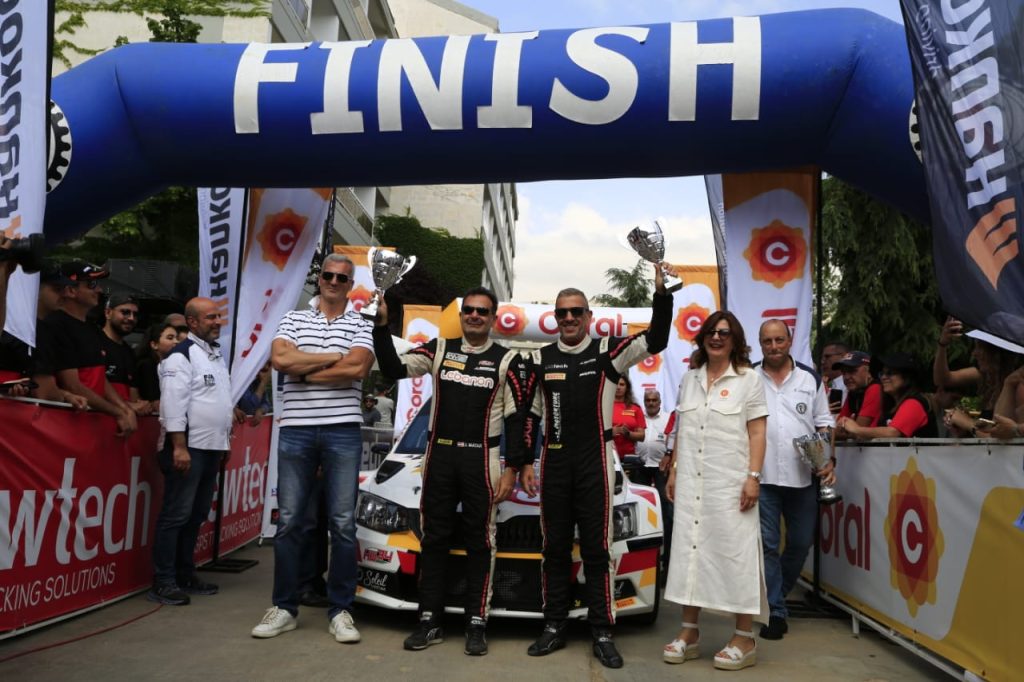
What can you tell us about your racing accomplishments?
I don’t drive a Ferrari because that’s never been my dream. My dream was simple: to build a team, to be at the start of an event—a rally or a hill climb—and to win just one event. That was it. I wanted to win one event to make my father proud. Back when he worked with drivers, they hardly ever won anything, maybe a small event every five or six years. So for me, winning even one championship or event would have been enough.
Things took off faster than I ever imagined. In my very first year, I made it to the podium with a regular car—just a Golf 2 16-valve. By the next year, I had won the championship. It felt like an unbelievable dream, and I remember crying at almost every event. From there, everything snowballed.
Since then, I’ve won countless rallies and hill climbs—so many that I’ve honestly lost count. I do know I’ve won the Rally of Lebanon 17 times, which is a round of the Middle East Rally Championship, and I’ve also won the Lebanese Rally Championship 17 times. Beyond that, there are over 100 victories across speed tests and rallies. Maybe Wikipedia has a better count than I do, because I’ve never kept track!
I’m not here to count trophies. Maybe when I retire—though I hope that’s not anytime soon—I’ll go through everything. I’ve kept all my memorabilia: my t-shirts, gloves, helmets, everything. I never throw anything away or give it away. For now, it’s all about the passion for driving, and that’s what keeps me going.
Racing runs in the Feghali family. What can you tell us about your brother’s successes?
My brother, Dado—his real name is Abdo—started racing two years after me in 1998. He’s four years younger than I am, but he quickly proved to be really talented. He even signed with Red Bull early on, sometime before 2010. Around 2010, he started shifting more toward organizing events for Red Bull, especially drift events.
He has a completely different personality from mine—he’s a natural people person. He’s great at socializing and connecting with others. If he walks into a restaurant where no one recognizes him at first, by the time he leaves, everyone’s following him on Instagram! He’s got that PR charm; he knows how to talk to people and leave an impression. In contrast, I’m more reserved. When I show up at events, I’m all about focus. People might say, ‘Why didn’t you say hi?’ but it’s because my mind is on the race, the team and the logistics. I’m managing a team, mechanics, drivers and co-drivers, so I’m only truly alone when I’m in the car driving.
Dado’s taken his skills in PR and event management to another level, and he’s still driving a bit. His son, Christopher, is already making waves. At just 14 years old, Christopher became the first driver from the Middle East to sign with Red Bull and is competing in the F4 Spanish Championship—the road to F1. We’re all incredibly proud of him, and Dado is working tirelessly to support his journey. Fingers crossed for what’s ahead!
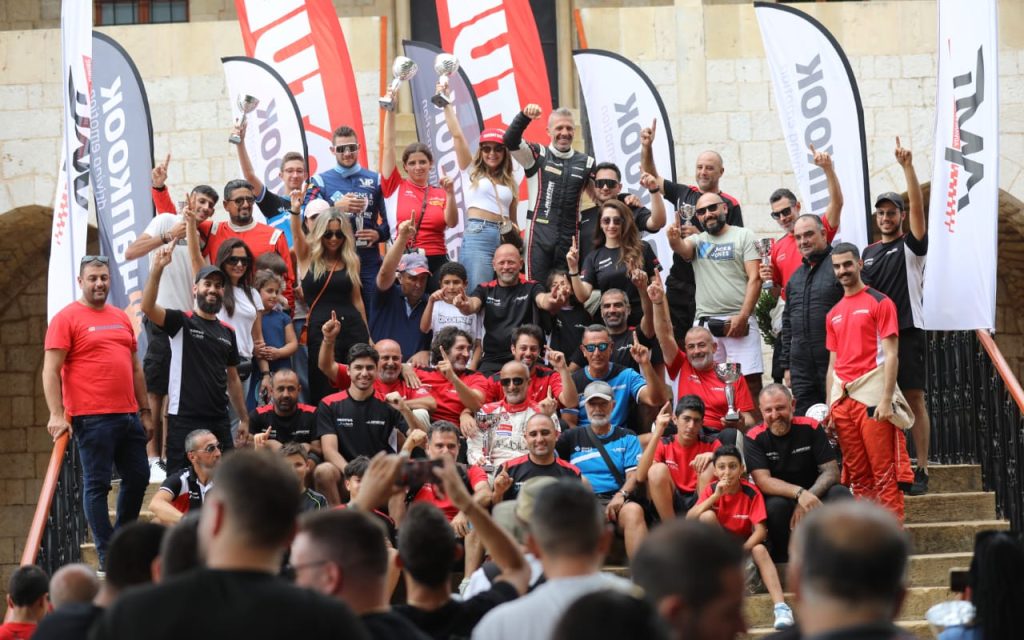
How rooted are you in Lebanon?
I’m from a small countryside town called Wadi Shahrour. We had a really rough childhood because of the war, so we had to leave to the mountains for around eight years. Although we returned in 1990, we witnessed another war in 1990, yet we stayed . It is a close-knit community. I organized the first ever race in my town in 2019, which was incredible. We have had four events in Wadi Shahrour. Seeing the town come alive with thousands of people on the road is amazing. So yeah, I love it that it’s quiet most of the time, with just a few shops and a little bakery.
What is your philosophy?
In life, the number of mistakes or things we regret is overwhelming. There are always things we’d rather not reveal or share with others—it’s not easy to face those truths. I was fortunate to study at an evangelical school, and I’m incredibly grateful for the foundation it gave me. That path shaped much of who I am today.
I can’t claim to be a true Christian because, honestly, no one is perfect. We all make mistakes. But I try to live with deeper faith and meaning, even though it often feels like my efforts fall short. Being grateful, surrounding myself with good people and striving to do better are my goals, though life often throws obstacles in the way. I don’t know why things can’t always go as planned, but I keep trying my best.
Are you planning anything exciting in 2025?
This year, we had plans to really push Motortune, our automotive repair and tuning garage, to the next level—investing in better cars, keeping up with what they’re driving in the WRC and advancing motor tuning further. But the situation makes it tough. There’s no banking system, no investments—it’s challenging to move forward under these conditions. For now, we’re just hoping to get through the year quietly and see what 2026 holds.
I’m still driving, though. I’ll be participating in a couple of championships, including the Saudi Championship. It will be the first time I compete in the Kingdom of Saudi Arabia. The goal is to open up a new market for Motortune. At the same time, I’m focused on supporting the younger generation.
Life is unpredictable, full of surprises, so we’ll see what happens. For now, it’s about staying committed, pushing forward and seeing where the journey takes us.
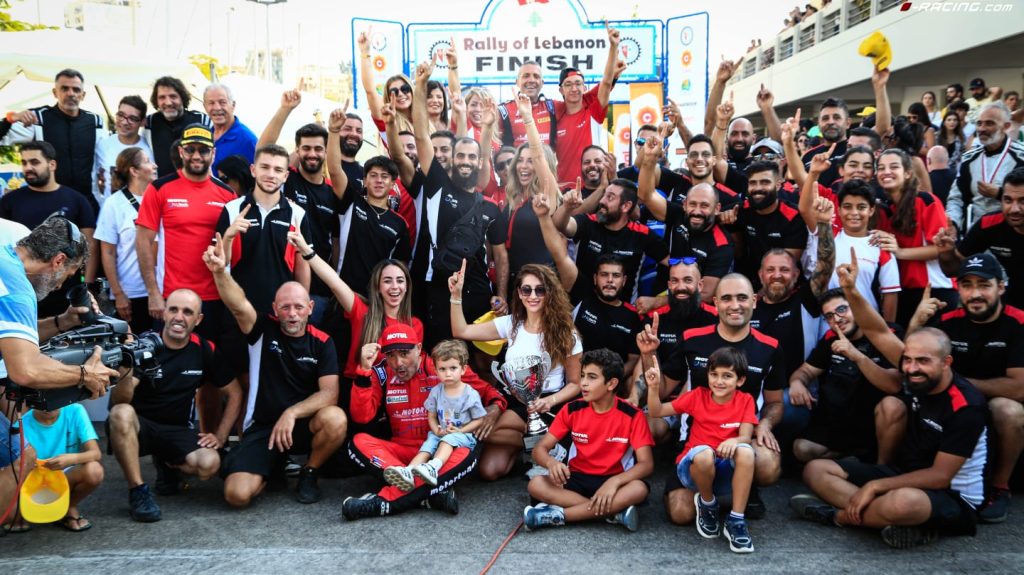
What’s next for Roger Feghali?
Normally, people think about stopping at the age of 40 or so; that’s when many have built up wealth, decide it’s time to relax, spend time with family and enjoy life. But for me, it’s different. We’ve never had the luxury of money just sitting in the bank. Driving has always been something we’ve poured our resources into—it’s a passion we’re willing to invest in.
Even with over 100 event wins and countless trophies, it’s not something we get paid for. Every single year, I have to piece together the budget to keep going. Sponsors help, but they only cover 30-50% of the costs at most. The rest comes out of our own pockets. It’s a lot of effort, but this is my passion. It’s who I am. Why should I stop? I love what I do, and as long as I can still go fast, I’ll keep going.
If you enjoyed reading this, read our article with driving legend Billy Karam.
Loading
